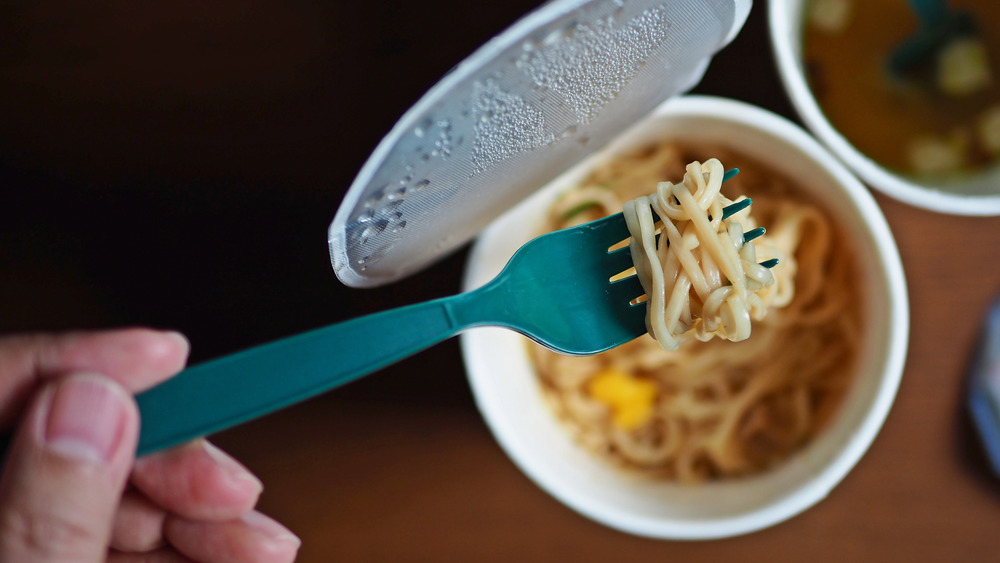Why You Should Think Twice Before Eating Instant Ramen
Instant ramen noodles are a tempting on-the go microwavable meal. Between the colorful eye-catching packaging, and the wide range of flavors, it's an easy solution to hunger pains when you find yourself short on time. Though tasty and convenient, the ingredients used in instant ramen to extend expiration dates can negatively impact our health (via Healthline). Occasional consumption does not pose much risk, but incorporating instant noodles as a regular part of your diet can have long-term side effects.
A 2014 study published in The Journal of Nutrition found that participants who consumed ramen noodles upwards of two or more times a week, were found to have increased rates of heart disease, diabetes, and stroke by as much as 68 percent (via ScienceDaily). Further research showed that these results were more common in women than in men.
So what about ramen is causing these increased health risks? One of the main culprits is the high level of sodium contained in each instant ramen meal.
High levels of sodium and preservatives increase health risks
Large amounts of sodium can be found in most processed food items and instant noodles are no exception. With 1,760 mg found in each package, regularly ingesting that much salt puts one far over the daily recommended intake and has been linked to increased likelihood of stomach cancer among other health conditions (via Healthline).
What ramen lacks in nutritional value, it makes up for in chemicals. Instant noodles contain Tertiary-butyl hydroquinone (TBHQ) which serves the purpose of prolonging how long food items will keep for, but it also contains petroleum like those found in pesticides (via Keck Medicine of USC) or even Reese's peanut butter cups and McDonald's chicken nuggets (via Microsoft News). Our stomachs have a hard time breaking down TBHQ and high levels of consumption can induce vomiting, delirium, and when paired with artificial flavor enhancers, liver damage.
Though we may not find ourselves able to cook healthy, well-rounded meals every day, there are some ways to increase the nutritional value of ramen. Medical experts at Healthline suggest adding in fresh vegetables and healthy proteins, while replacing the powdered flavor packet with your favorite herb or spice seasonings. The key is moderation and using ramen noodles as the occasional back up option versus your first meal choice, will reduce the risk of health complications later on.


